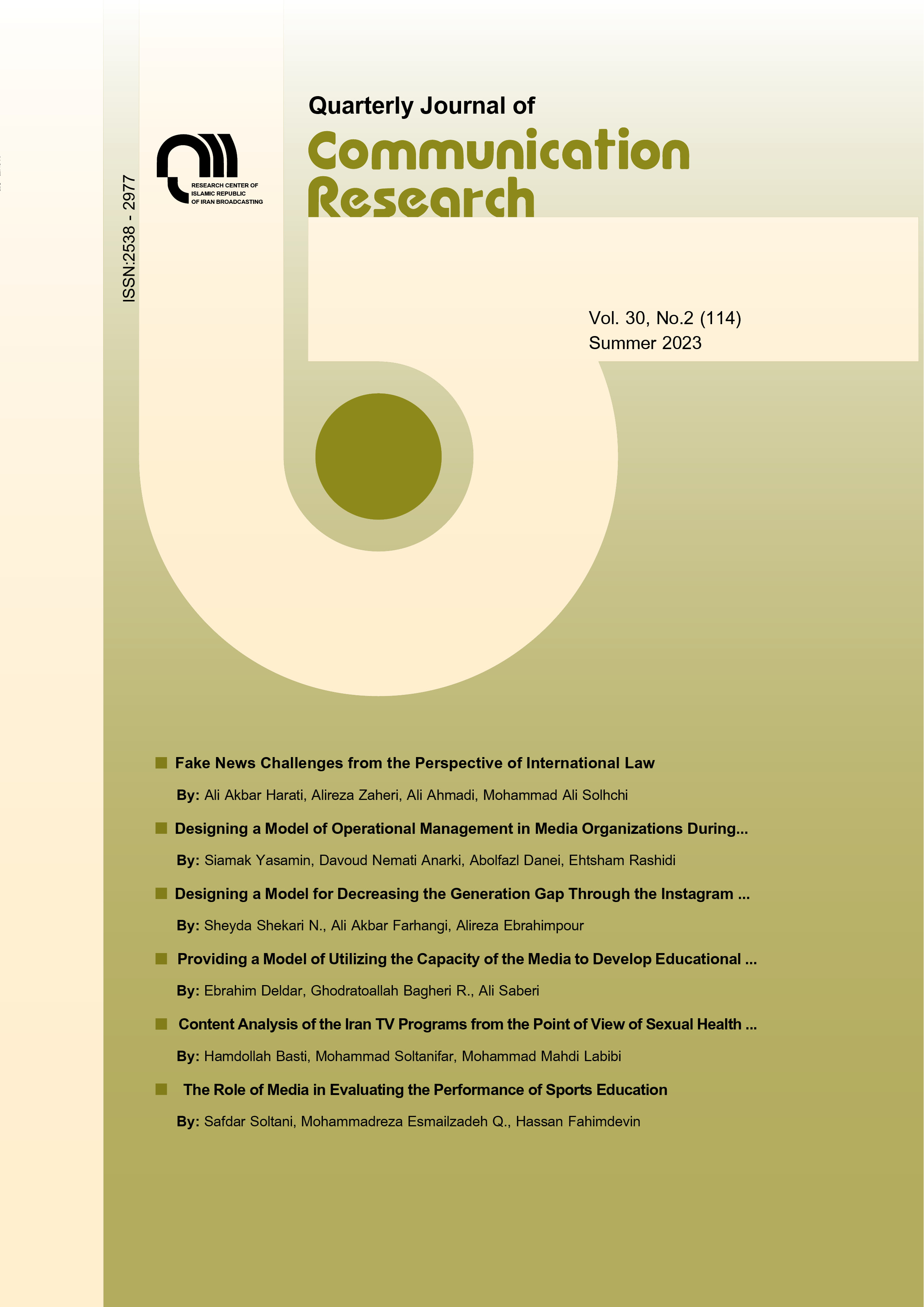Document Type : Original Article
Authors
1 Cultural Management and Planning, South Tehran Branch, Islamic Azad University, Tehran, Iran
2 professor in Management, Science and Research Unit, Islamic Azad University, Tehran, Iran
3 Assistant Prof. In Management and Planning of Cultural Affairs, Islamic Azad University, Central Tehran Branch, Tehran, Iran
Abstract
The aim of this research was providing a model to Decrease the generation gap among students through the Instagram social network. This research was applied in terms of purpose, mixed in terms of data and exploratory survey in terms of implementation. The statistical population of the qualitative part was experts whom included senior managers of education and university professors in the field of culture and virtual space, and 20 of them were selected for interviews purposefully and by snowball method. And in the quantitative part were parents, principals, and teachers of secondary schools in Tehran. 163 people were selected as a sample using the Karjesi table and by random method. Also, to determine the validity of the findings in the qualitative part, three pluralism methods were used, and to determine the reliability in the quantitative part, Cronbach›s alpha method was used. Theoretical coding was used to analyze qualitative data and confirmatory factor analysis was used to analyze quantitative data. The obtained results have led to the identification of 65 open codes, 17 central codes and 5 selective codes as programs and cultural strategies effective in reducing the generation gap through the Instagram social network among students. Finally, the obtained factors have formed the model. The obtained results indicate that by implementing the identified cultural strategies and programs, the generation gap among secondary school students can be reduced to some extent.
Keywords
Main Subjects

